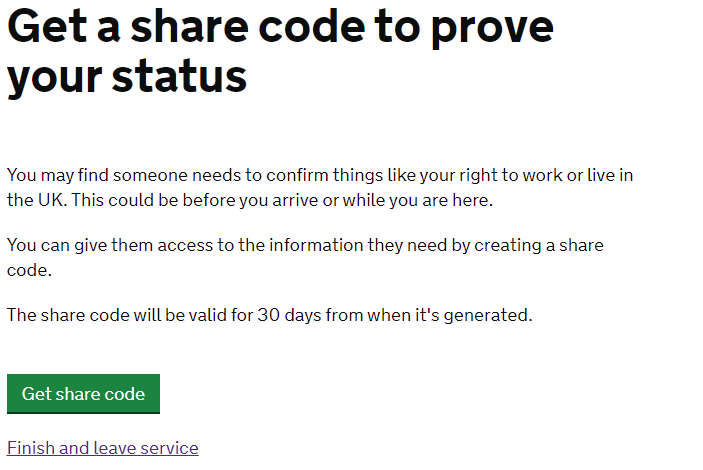The Ultimate Guide on How to Get Share Code

In the digital age, sharing code is an integral part of collaborative programming, web development, and various other technical endeavors. Whether you’re working on a team project, seeking help on a forum, or contributing to open-source repositories, knowing how to efficiently share code is essential. This comprehensive guide will walk you through everything you need to know about obtaining and sharing code, from understanding what share code is to utilizing various platforms and tools for seamless collaboration.
What is Share Code?
Share code refers to the practice of distributing snippets, scripts, or entire programs among developers, enabling them to collaborate, learn, or troubleshoot more effectively. It can encompass anything from a few lines of code to entire software projects. Share code facilitates knowledge exchange, accelerates development, and fosters a sense of community within the programming world.
Understanding the Importance of Share Code
Share code plays a crucial role in the advancement of programming skills and the evolution of software development practices. By sharing code, developers can:
- Accelerate Learning: Access to a diverse range of code snippets and projects allows developers to learn new techniques, languages, and best practices more efficiently.
- Facilitate Collaboration: Sharing code streamlines collaboration among team members, enabling them to work together on complex projects regardless of geographical location.
- Troubleshoot Effectively: When encountering bugs or issues, developers can seek help from online communities by sharing relevant snippets of their code, making it easier for others to identify and address the problem.
- Contribute to Open Source: Share code fosters the growth of open-source software by allowing developers to contribute their expertise to projects of interest to them and the broader community.
How to Get Share Code
Obtaining share code involves leveraging various resources and platforms tailored to different purposes. Here are several methods to acquire share code:
- Online Code Repositories: Websites like GitHub, GitLab, and Bitbucket host millions of repositories containing a vast amount of shareable code. You can search for projects relevant to your interests or needs and access their codebase directly.
- Programming Forums and Communities: Platforms such as Stack Overflow, Reddit’s programming subreddits, and specialized forums like CodeProject offer forums where developers share code snippets, seek assistance, and engage in discussions.
- Code Sharing Platforms: Dedicated code-sharing platforms like Pastebin, CodePen, and JSFiddle allow users to quickly share and collaborate on code snippets, scripts, and small projects.
- Documentation and Tutorials: Many programming languages and frameworks provide extensive documentation and tutorials accompanied by code examples. Websites like Mozilla Developer Network (MDN) and official language documentation sites are valuable resources for obtaining shareable code.
- Open Source Projects: Contributing to open-source projects not only allows you to access existing codebases but also encourages collaboration and skill development within a community-driven environment.
- Peer Collaboration: Collaborating with peers, whether through formal partnerships, hackathons, or informal coding sessions, is an excellent way to obtain share code while honing your teamwork and communication skills.
Best Practices for Sharing Code
While sharing code can be immensely beneficial, it’s essential to adhere to best practices to ensure clarity, security, and ethical considerations:
- Document Your Code: Provide clear and concise comments within your code to explain its purpose, functionality, and any potential pitfalls. Well-documented code is easier for others to understand and use effectively.
- Respect Licensing and Copyright: Be mindful of licensing agreements and copyright laws when sharing code, especially in the context of open-source projects. Adhere to the terms specified by the original author and give appropriate credit where due.
- Ensure Security: Before sharing code publicly, review it for potential security vulnerabilities or sensitive information that should be redacted, such as API keys or passwords. Protecting sensitive data helps maintain the integrity of your projects and prevents security breaches.
- Follow Community Guidelines: When sharing code on forums, platforms, or open-source repositories, familiarize yourself with the community’s guidelines and etiquette. Respectful communication and adherence to community norms contribute to a positive collaborative environment.
- Contribute Back: If you benefit from using shared code or open-source projects, consider contributing back to the community by sharing your own code, providing feedback, or participating in discussions and code reviews.
Conclusion
In conclusion, knowing how to obtain and share code effectively is a valuable skill for developers at all levels. Whether you’re seeking to learn new concepts, collaborate with peers, or contribute to the broader programming community, leveraging share code can accelerate your growth and enhance your professional development. By utilizing online repositories, forums, code-sharing platforms, and collaborative opportunities, you can access a wealth of resources and contribute to the collective knowledge of the programming community. Remember to follow best practices for sharing code, including documentation, respecting licensing and copyright, ensuring security, and fostering a culture of collaboration and mutual respect. With these guidelines in mind, you’ll be well-equipped to navigate the world of share code and harness its power to advance your programming journey.




